Lughnasa Waning Artemis Moon
While it’s fresh. A meeting this morning with our financial manager where we went over, again, the various moving parts of our investments. It resulted in a down feeling, almost defensive. What was this? He said we’d be fine financially and I believed him. We overhauled our whole approach to money now over ten years ago and have a great track record since then. When I mentioned my feelings to Kate, she said she trusted in our ability to adapt. Again, I believed her. We have and will adapt to changed circumstances.
It took a while to delayer my feelings. First, I noticed anxiety (my unfortunately favorite response to the unknown), as if a vast pit were about to open ahead of us. A pit of this and then a possible that and more stuff we didn’t know, or have impact on. A little deeper I recognized a fear about being dependent on a bag of gold held in some financial dragon’s lair and only won back by dint of great effort. Silly. Obtuse. Still, the case.
Pushing a little further, a different layer. Retirement. When Kate retires, my long tenuous connection to the world of work would fray, then vanish. It’s as if she’s retiring for both of us. Or, rather, that I feel the imminence of retirement perhaps in a manner similar to the couvade, a strange situation in some cultures where a husband takes on the characteristics of his wife’s pregnancy, often placing a heavy rock on the belly near the birth moment and heaving it off. So, there’s the unknown, the strange sense of money coming in from a pot somewhere far away, a feeling of retiring that is sympathetic or empathetic rather than actual. But, that wasn’t the end.
What finally came to me was a mixture of shame, guilt and fear, all related to no longer having a viable connection to the world of work. This is my middle class roots talking. As long as Kate practices, I have a tangible though fragile link to work and the income it produces. After she retires, all semblance of that relationship vanishes. In the central Indiana world where I grew up not to work was shameful, weak, irresponsible. Kate responded with, “Well, I’m upper middle class and I don’t care! (about the abandoning work)”
All of our life comes along for the ride and we never knew when one part or another will express itself, rise up and claim attention.

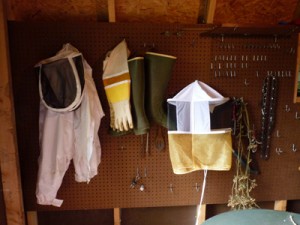
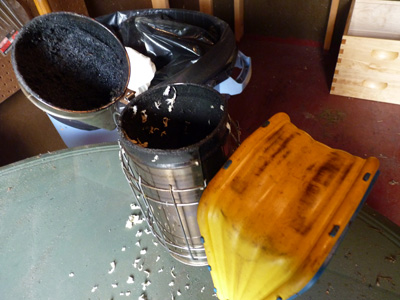
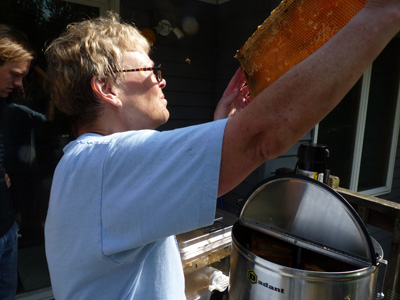 Doing the extraction. The frames with honey go in the extractor, lid up. Then they whir around and centrifugal empties them of their honey while leaving the honey comb intact. That means next year’s bees won’t have to waste energy building comb. They can go straight to honey production.
Doing the extraction. The frames with honey go in the extractor, lid up. Then they whir around and centrifugal empties them of their honey while leaving the honey comb intact. That means next year’s bees won’t have to waste energy building comb. They can go straight to honey production.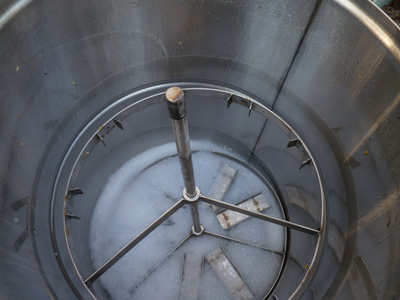
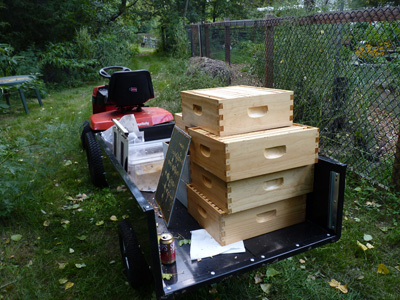
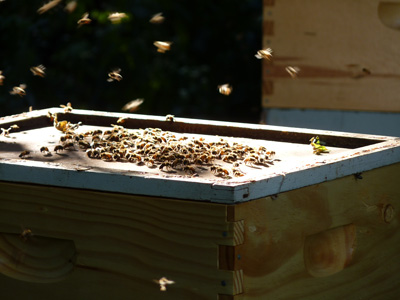
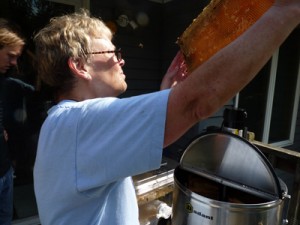 capping, there is an additional step, uncapping. Kate did this chore with the electric uncapping knife. We had at least one extractor run with 80% or more capped. This honey was darker. We can bottle it right out of the extractor after filtering.
capping, there is an additional step, uncapping. Kate did this chore with the electric uncapping knife. We had at least one extractor run with 80% or more capped. This honey was darker. We can bottle it right out of the extractor after filtering.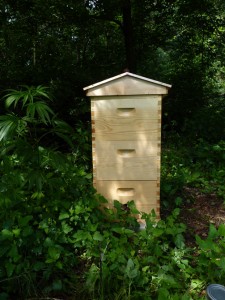 Lughnasa Waning Artemis Moon
Lughnasa Waning Artemis Moon






